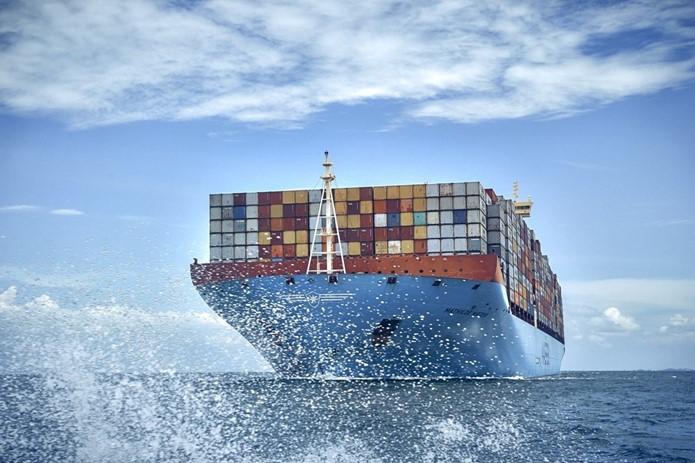Volvo Cars Switches to Renewable Fuels for Ocean Freight, Reducing Fossil CO2 Emissions by 84%
Published: Jul 04, 2023
Volvo Cars has become the
first global car maker to switch to renewable fuels for ocean freight, leading
to a significant reduction of fossil CO2 emissions. Discover how this
initiative using renewable fuel cuts emissions by 84% and supports the
company's commitment to sustainability. Learn more at Finlay Motor Group, the
authorized Volvo Dealership in Naas, County Kildare, just 20 km from Dublin
City West. 
Learn more at Finlay Motor Group, the authorized Volvo Dealership in Naas, County Kildare, just 20 km from Dublin City West.
Volvo Cars switches to
renewable fuels for ocean freight that will cut fossil CO2 emissions by 84%
Volvo Cars has taken a
significant step towards sustainability by becoming the first global car maker
to switch to renewable fuels for ocean freight. This groundbreaking initiative
will lead to a remarkable reduction in fossil CO2 emissions and support Volvo
Cars' commitment to combat climate change.
By utilizing renewable
fuel instead of traditional fossil fuel, Volvo Cars will achieve an immediate
reduction of approximately 55,000 tonnes of fossil CO2 emissions from
intercontinental ocean freight annually. The renewable fuel, known as Fatty
Acid Methyl Esters (FAME), is derived from renewable and sustainable sources,
primarily waste cooking oil. It is important to note that no feedstock
associated with palm oil or palm oil production is used in the production of
this renewable fuel.
Compared to fossil fuel,
the use of renewable fuel results in a minimum reduction of 84% in CO2 emissions.
This reduction is equivalent to the amount of CO2 emitted by a full truck
circling the equator approximately 1,200 times. This remarkable achievement not
only showcases Volvo Cars' dedication to sustainable practices but also sets a
precedent for other car makers to follow suit.
Volvo Cars will utilize
renewable fuel for inbound ocean container transports of production material
destined for manufacturing plants in Europe and the Americas. Furthermore, all
spare parts distribution worldwide will also transition to renewable fuel
through ocean container transports. This commitment extends globally,
emphasizing Volvo Cars' determination to make a lasting impact on reducing
emissions across their supply chain.
Javier Varela, the Chief
Operating Officer and Deputy CEO of Volvo Cars, emphasizes the significance of
this initiative: "Renewable fuel is not the end game for removing CO2 from
the world's ocean freight needs. Yet this initiative shows that we can act now
and implement solutions that achieve significant results during the wait for
long-term technological alternatives." It is clear that Volvo Cars aims to
inspire other car manufacturers to take similar actions, thereby increasing the
demand for carbon-efficient ocean transports and establishing renewable fuels
as a viable mid-term solution.
In collaboration with
logistics partners Maersk, Kuehne+Nagel, and DB Schenker, Volvo Cars has worked
tirelessly on this initiative. As of June 1, 2023, these logistics service
providers have successfully switched to renewable fuel for all container
transports related to Volvo Cars. In instances where renewable fuel is
unavailable for a specific shipment, the renewable fuel allocation is
redirected to another customer's route, ensuring an overall reduction in fossil
fuel usage. This approach, known as mass-balancing, undergoes regular
third-party audits to maintain its integrity. The renewable fuel utilized is
certified and does not compete with food crops, ensuring compliance with the EU
Renewable Energy Directive and promoting sustainability.
Javier Varela further
states, "We're continually exploring sustainability opportunities across
all aspects of our supply chain and our overall business." Volvo Cars'
dedication to sustainability is evident in their ongoing efforts to reduce
their lifecycle carbon footprint per car by 40% between 2018 and 2025, with a
specific focus on a 25% reduction in operational emissions, including
logistics. Additionally, the company strives for climate-neutral manufacturing
by 2025, representing essential milestones on their path to becoming a
climate-neutral company by 2040.
This switch to renewable
fuels for ocean freight highlights Volvo Cars' unwavering commitment to
sustainable practices and environmental stewardship. By leading the way in
implementing innovative solutions, Volvo Cars aims to inspire positive change
within the automotive industry, encouraging other manufacturers to adopt
similar measures and contribute to a greener future.
Visit Finlay Motor Group, the
authorized Volvo
Dealership in Naas, County Kildare, situated just 20 km away from Dublin
City West, to learn more about Volvo Cars' sustainability initiatives and
explore their impressive range of environmentally friendly vehicles. Note: Comparison of fuels
includes emissions from production and use of an equivalent amount of energy
(Well-to-Wake - WTW).
Volvo Cars, renewable
fuels, ocean freight, fossil CO2 emissions, sustainability, renewable fuel
allocation, climate-neutral company, authorized Volvo Dealership, Finlay Motor
Group, Naas, County Kildare, Dublin City West
Call us: 045-431725
